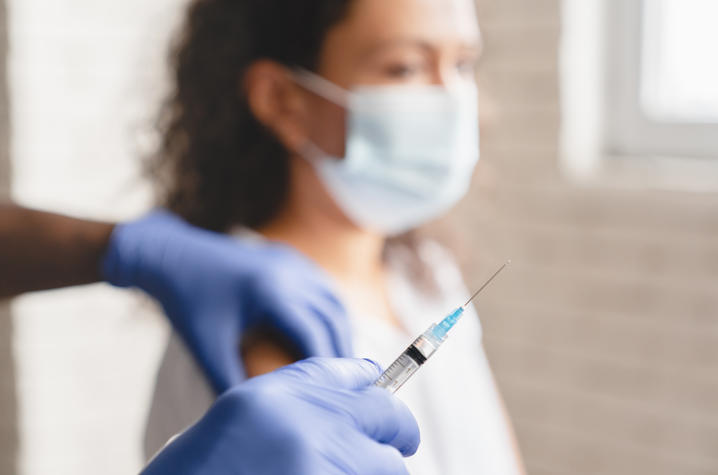It may not be too late to get your HPV vaccine

The University of Kentucky Public Relations and Strategic Communications Office provides a weekly health column available for use and reprint by news media. This week's column is by UK HealthCare Director of Retail and Community Pharmacy Services Erin Poteet, Pharm.D.
LEXINGTON, Ky. (Sept. 5, 2023) — Kentucky has the highest rate of cancers caused by the human papillomavirus (HPV) in the U.S. — a dire statistic considering these cancers can be largely preventable through vaccination.
The HPV vaccine can prevent over 90% of sexually transmitted cancers caused by the human papillomavirus (HPV), including cervical, anal, penile, vaginal, vulvar and head/neck cancers.
Today, you can take an extra step toward protecting your children against HPV-related cancers with the HPV vaccine. The CDC now recommends that all 11-12 year-old children (girls and boys) get just two doses, with the second being given 6-12 months after the first.
While the vaccine is most effective when given to children, it can still provide protection against HPV for teens and adults. So if you have not yet been vaccinated for HPV, it may not be too late. The FDA now approves the use of the HPV vaccine in males and females up to age 45.
People ages 26 to 45 should discuss the benefits of the vaccine with their doctor. Getting vaccinated in this age range can still have benefits, since people can acquire different strains of HPV over time. If you’re unvaccinated, you can still acquire the higher-risk strains later in life.
In addition to the HPV vaccine, it’s important for women to get regular screenings for prevention and early diagnosis of cervical cancer. Also known as a pap smear, this test looks for cancerous cells on the cervix, and can even find precancerous changes that have not yet developed into cancer. Screenings usually begin at age 21 or three years after first sexual intercourse. Talk to your doctor about a timeline for regular screenings.
One reason the vaccine (and for females, cervical screenings) is so important is because HPV-related cancers often don't cause obvious symptoms until more advanced stages.
For cervical cancer, some of the most common symptoms reported include abnormal bleeding or bleeding after sexual intercourse, and an abnormal discharge. As the cancer advances further, it can cause urinary blockage, back pain, leg swelling, or neuropathic pain, such as a "pins and needles" sensation in the skin.
UK HealthCare is the hospitals and clinics of the University of Kentucky. But it is so much more. It is more than 10,000 dedicated health care professionals committed to providing advanced subspecialty care for the most critically injured and ill patients from the Commonwealth and beyond. It also is the home of the state’s only National Cancer Institute (NCI)-designated Comprehensive Cancer Center, a Level IV Neonatal Intensive Care Unit that cares for the tiniest and sickest newborns and the region’s only Level 1 trauma center.
As an academic research institution, we are continuously pursuing the next generation of cures, treatments, protocols and policies. Our discoveries have the potential to change what’s medically possible within our lifetimes. Our educators and thought leaders are transforming the health care landscape as our six health professions colleges teach the next generation of doctors, nurses, pharmacists and other health care professionals, spreading the highest standards of care. UK HealthCare is the power of advanced medicine committed to creating a healthier Kentucky, now and for generations to come.




